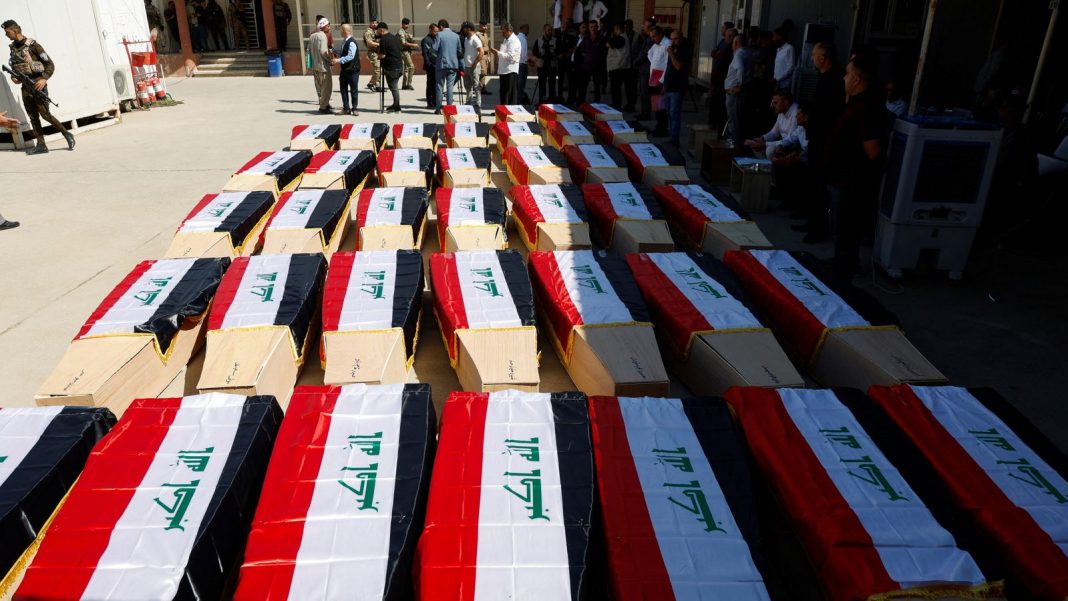Crimes of genocide were committed by Islamic State militants against an ancient religious community in Iraq and Syria, the UK has acknowledged.
It means the atrocities inflicted by the jihadist group on the Yazidis join those of the Holocaust, Rwanda, Srebrenica and Cambodia recognised by Britain.
The Kurdish-speaking minority were persecuted as ‘devil worshippers’ by IS after it seized large swathes of territory in Syria and Iraq in 2014.
Thousands of men were killed and women and children were enslaved and raped when the fanatics overran the ancestral home of the Yazidis.
The UK’s acknowledgement of genocide, the aim of which is to wipe out a nation or ethnic group, was announced ahead of events to mark the nine-year anniversary of the barbarous treatment of the Yazidis at the hands of IS.
Minister for the Middle East Lord Ahmad of Wimbledon said: “The Yazidi population suffered immensely at the hands of Daesh nine years ago and the repercussions are still felt to this day.
“Justice and accountability are key for those whose lives have been devastated.
“Today we have made the historic acknowledgement that acts of genocide were committed against the Yazidi people.
“This determination only strengthens our commitment to ensuring that they receive the compensation owed to them and are able to access meaningful justice.
“The UK will continue to play a leading role in eradicating Daesh, including through rebuilding communities affected by its terrorism and leading global efforts against its poisonous propaganda.”
Please use Chrome browser for a more accessible video player
3:36
Yazidi woman: ‘We tried to flee ISIS’
Read more:
Woman held as slave by German mum who joined IS relives her captivity
Islamic State leader in Syria killed by Turkish intelligence services
Britain’s position has always been a determination of genocide should be made by a court rather than by governments or other bodies.
The decision comes after the German Federal Court of Justice earlier this year upheld the landmark conviction of a former Daesh fighter for acts of genocide and crimes against humanity in Iraq and Syria.
Taha al Jumailly was sentenced to life after being found guilty of his involvement in the slaughter and abuse of the Yazidis.
This included the murder of a five-year-old girl he had enslaved and chained to a window, leaving her to die of thirst in scorching heat in 2015 in Iraq.
During his visit to Iraq earlier this year, including to the Kurdistan region, Lord Ahmad welcomed progress with the passage of the Yazidi survivors law, which will provide reparations to victims.
A commemoration event, which is being held in Baghdad, has been organised by Yazidi civil society organisations.
The UK’s Ambassador to Iraq, Steve Hitchen, will attend and confirm the UK’s announcement.
IS lost its last territorial stronghold in 2019, after being ousted by US-backed forces.
Despite this, the UK has said the group remains a serious threat in Iraq, Syria and elsewhere and supports international efforts to bring perpetrators to justice.







